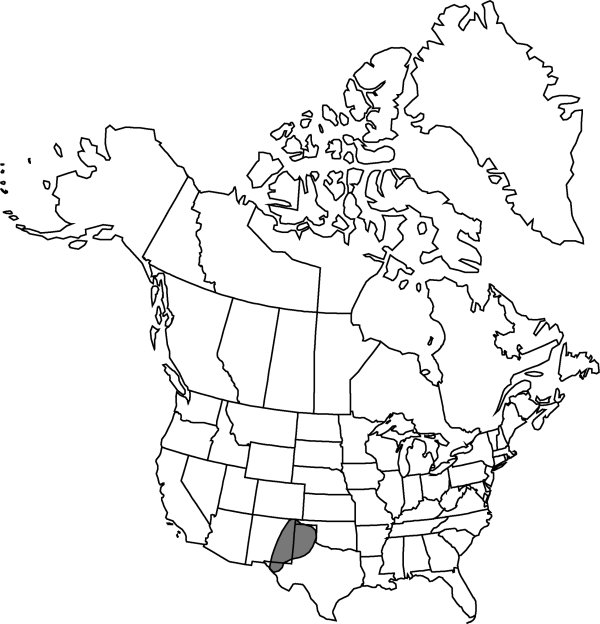Difference between revisions of "Mirabilis linearis var. subhispida"
Novon 12: 270. 2002.
Basionym: Mirabilis linearis forma subhispida Heimerl Annuaire Conserv. Jard. Bot. Genève 5: 186. 1901
Synonyms: Allionia gausapoides Standley Mirabilis gausapoides (Standley) Standley
FNA>Volume Importer |
FNA>Volume Importer |
(No difference)
| |
Revision as of 22:21, 16 December 2019
Stems usually erect or ascending, 2.5–12 dm, hirsute, at least basally. Leaf blades 5–11.5 × 0.1–1 cm, surfaces glabrous or densely hispid. Inflorescences single involucres in axils, or terminal, well branched, with ± well-defined main axis; fruiting involucres 5–10 mm, crosswalls of peduncle hairs usually pale. Perianth pale to deep pink.
Phenology: Flowering late spring–summer.
Habitat: Dry open, sandy, rocky, or calcareous areas, prairies, roadsides, among juniper
Elevation: 1000-1500 m
Distribution

N.Mex., Okla., Tex., Mexico.
Discussion
Mirabilis linearis var. subhispida intergrades with Mirabilis rotundifolia and with M. albida through its named phases M. hirsuta, widespread on the Great Plains, and M. eutricha, from the southern plains.
Selected References
None.
Lower Taxa
None.